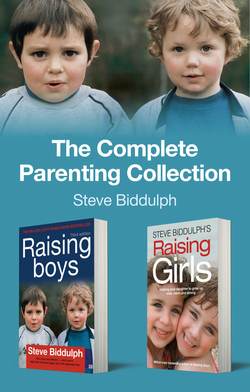Читать книгу The Complete Parenting Collection - Steve Biddulph, Steve Biddulph - Страница 28
Enlisting the help of others
ОглавлениеThe years from fourteen until the early twenties are for moving into the adult world, for separating from parents. Parents carefully and watchfully ease back. This is the time when a son develops a life which is quite separate from the family. He has teachers you barely know, experiences you never hear about, and he faces challenges that you cannot help him with. Pretty scary stuff.
A fourteen- or sixteen-year-old is far from ready to just be ‘out there’. There have to be others to act as a bridge, and this is what mentors do. We should not leave youngsters in a peer group at this age without adult care. But a mentor is more than a teacher or a coach: a mentor is special to the child and the child is special to him. A sixteen-year-old will not always listen to his parents – his inclination is not to. But a mentor is different. This is the time for the youngster to make his ‘glorious mistakes’, and part of the mentor’s job is to make sure the mistakes are not fatal.
Parents have to ensure that mentoring happens – and they should have a big hand in choosing who does it. It really helps to belong to a strong social group – an active church, a family- minded sport, a community-oriented school, or a group of friends who really care about each other.
You need to have these kinds of friends to provide what uncles and aunts used to – someone who cares about and enjoys your kids. These friends can show an interest in your youngsters, and ask them about their views. Hopefully they will make your kids welcome in their homes, ‘kick their bum’ occasionally, and be a listening ear when things at home are a little tense. (Many a mother has experienced a big fight with her teenage daughter, who then runs off to tell her woes to her mum’s best friend down the road. This is what friends are for!)
You can do the same for their kids, too. Teenagers are quite enjoyable when they are not your own!
